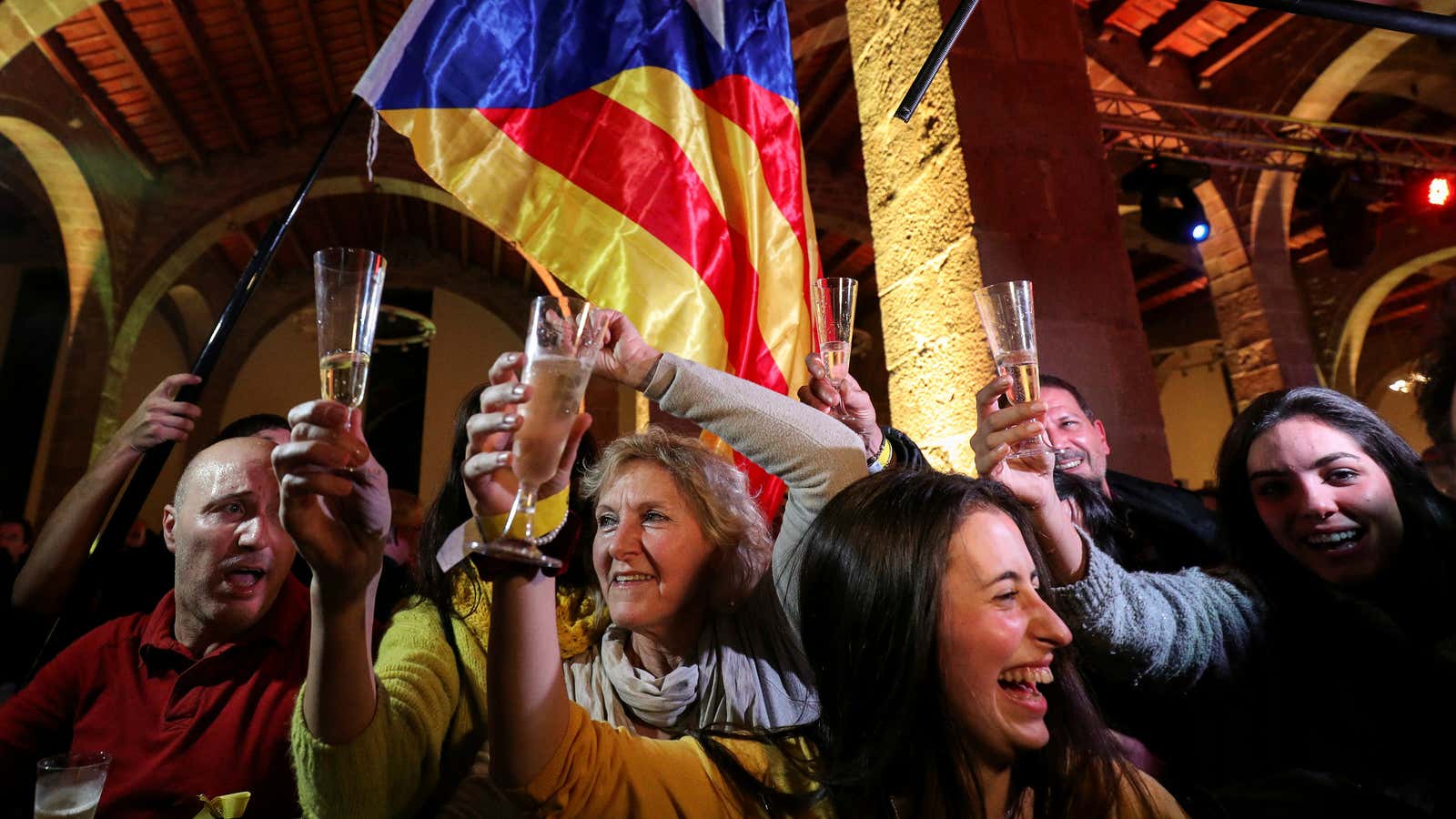After Catalonia formally declared independence from Spain in October, Madrid quickly responded by imposing direct rule over the region and instigating new elections on Dec. 21. A record number of people turned out to vote in yesterday’s snap election and handed pro-independence parties another majority in the region’s parliament.
But the results are much more complicated than that. The three separatist parties combined won a slim majority of the seats in the 135-seat parliament, slightly less than they had in the previous parliament. However, the biggest party winning the most votes was the centrist Ciudadanos party, which is in favor of Catalonia staying part of Spain. The results show how deeply divided Catalans are about the issue of independence.
Ousted Catalan president Carles Puigdemont, speaking from self-imposed exile in Brussels, said that the election result was a victory for the “Catalan republic.” His party, Together for Catalonia, won 34 seats—more than expected (paywall). The second biggest separatist party is Republican Left of Catalonia, led by former vice-president Oriol Junqueras, who is currently in a Spanish jail facing accusations of rebellion and sedition for his part in organizing October’s referendum.
Spanish prime minister Mariano Rajoy’s conservative People’s Party got a drubbing, winning only three seats. The result is a blow to Rajoy, who had called the snap election in the hopes of stamping out calls for unilateral independence and reinstating Spanish rule of law over the region. Spanish stocks fell (paywall) on Friday morning as the results suggest there will be more tension between Barcelona and Madrid.
Given the results, it’s unclear who will get to form a government. The Citizens party, which got just over 50% of the popular vote, would struggle to form a coalition government with the other unionist parties, as they are all divided and how to move forward and who should be the next first minister.
With a majority of the seats, the separatists would have a better chance of forming a coalition, but since the referendum these groups have become even more fractured. Not everyone is in favor of reinstalling Puigdemont as president—plus he could also be arrested as soon as he returns to Spain for his role in the independence referendum.
“The secession movement is not going to go away,” says Antonio Barroso, deputy director of research at think tank Teneo Intelligence. However, the fact remains that the Spanish constitution will still forbid the region to break away and the international reaction to Catalonia’s declaration of independence in October showed that other countries wouldn’t recognize the region as its own country.
